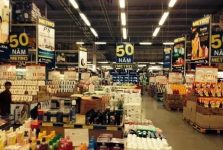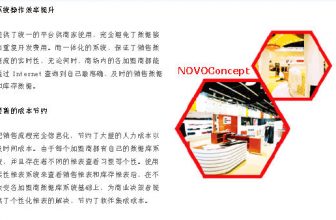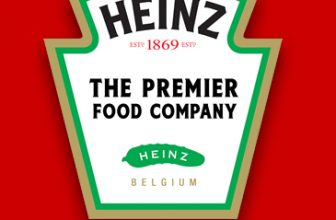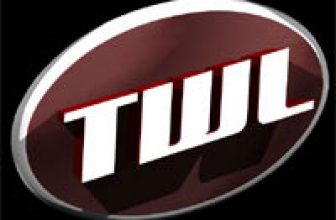
Retail giant—Metro’s application of RFID supply chain management case sharing
[ad_1]
Fully electronic chemical product supply chain management based on RFID technology can share sales, inventory, cost and other information with suppliers in real time. Suppliers can keep abreast of the sales and inventory status of their products in a timely manner, greatly reducing communication costs and replenishment time, and have a more accurate grasp of market response. Practice has proved that many international retail giants have adopted advanced supply chain management systems based on RFID technology to create an unshakable competitive advantage for them in the retail field.
RFID supply chain application case: Metro

Metro AG, also one of the world’s top 500 companies, is the largest retail and wholesale supermarket group in Germany, the second in Europe, and the third in the world. It owns a number of cash-and-carry stores and has opened department stores in more than 30 countries and regions. Stores and hypermarkets have great influence all over the world.
In 2002, Metro announced the “Store of the Future” plan, announcing the use of RFID technology throughout its supply chain. The plan has attracted more than 50 partner companies to jointly develop and test IoT RFID technology applications, covering all aspects of the retail supply chain such as inventory, transportation, logistics, and warehousing, and even the purchase experience of customers in retail stores. Metro CEO Muller said: “The daily work improvement results achieved after using the RFID supply chain solution can be said to be immediate. The delivery process of goods in warehouses and stores has been greatly accelerated, and the time wasted on delivery in the past has been significantly reduced. RFID has also helped us find The weak link in the processing of outgoing goods and the process of putting goods on the shelf in the warehouse have also been greatly improved. Generally speaking, the work efficiency of the employees has increased, while the number of out of stock in the store has decreased.”
In the Unna distribution center with the largest business volume, Metro has established a comprehensive tracking system for RFID pallets and deployed a number of RFID applications. Pallet tracking is the basis of the RFID system of the distribution center. More than 100 Metro suppliers use RFID tags in their warehousing, logistics, and distribution boxes and pallets. The warehouse door is equipped with fixed intelligent data collection equipment. When the pallet passes through the warehouse door, the data on the container label can be automatically identified, collected, and transmitted to the enterprise system through automatic sorting; the system will use this information Check with the electronic data of the shipping notification, the pallets that meet the system order will be approved by Metro, and the inventory system of the supply chain will also be updated in time when the goods are put into storage. This process does not require manual operation, which greatly reduces labor costs.
In the work flow in the opposite direction, RFID technology ensures that the warehouse can deliver the goods to the retail store accurately and quickly: forklift workers receive orders through instructions and read the RFID location tags to confirm the location, type, time, and time of the pickup of the goods. The quantity and other information will be delivered to the packaging area, and then loaded on the pallet and sent to the designated store.
The RFID system has also greatly improved the cargo delivery inspection process. The latest survey data from the University of Berkeley on Metro shows that after using the RFID system to identify pallets, confirm shipments and warehousing processing, the inspection and unloading tasks for each truck can save an average of 15 to 20 minutes; at the same time, the supply chain is not in place. Goods can be found in time, which improves inventory accuracy and reduces stock-outs by about 12%.
Mass purchases can strengthen headquarters’ control over purchases, reduce purchase costs, and increase bargaining power. The benefits are self-evident. Therefore, it has been adopted by many international retailers. Compared with other industries, the retail industry relies more on informatization and automation. Retail companies of a small scale must consider the support of an efficient supply chain system.
From this perspective, RFID technology undoubtedly provides a more convenient way and more efficient choice for the supply chain management of retail enterprises: the supply chain system based on the Internet of Things technology masters all the information on the purchase, sale and storage of goods, from the order of goods to Factory date, storage time, transportation, receiving, warehousing, sales, settlement and reordering not only ensure the accuracy of distribution, reduce labor costs, but also automatically predict sales volume, draw up purchase plans, and issue based on the historical records of the information system Orders, the inventory is controlled within a reasonable range; RFID readers have high accuracy and can scan boxes and goods accurately and quickly; RFID electronic tags contain large amounts of information and have strong anti-interference RFID technology can realize real-time monitoring of all links in the circulation of goods, from the initial design, raw material procurement, and semi-finished products. The production, finished product storage, transportation, logistics, retail and even return processing and after-sales service information can be tracked.
[ad_2]






